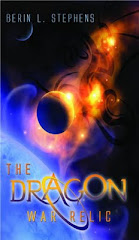Part IX
Location,
Location, Location
Last week we
talked about how we can create a humorous atmosphere by putting our
main character against their supporting cast. This could also be
classified as the 'man versus man' conflict. This week's topic is
related, but this time we pit our wily and witty hero against their
social environment, or 'man versus society'. Of course, putting our
character against their setting also includes the 'man versus nature'
conflict, too.
This is pretty
simple. Say we want to have a scene at a fast food establishment.
What's the fun in having it at a boring old place like that? How
about if we have them meet at Wally's Wiggly Pickle Palace? First
off, the name connotes humor, but it makes it more believable when
silly/funny things happen. In Bill and Ted's Excellent Adventure,
did they take Napoleon (yes, the Napoleon) to some
run-of-the-mill ice cream place? No, they took him to Ziggy Piggy and
had him 'eat the pig'.
So, having a
funny-sounding name adds humor, but how about if we spice up the
location a little? In the upcoming second season of Delroy Versus the
Pirates of Poughkeepsie, I needed him to go investigate the New Vegas
Space Station and Casino. I was racking my brain trying to think of
how I could make this setting more interesting and create humorous
conflict. I realized that casinos often host conventions. I next
asked myself, what kind of convention could be going on during
Delroy's visit? How about a Star Trek convention? That would allow me
a few inside jokes for sci-fi fans. I also decided that Delroy would
know next to nothing about Star Trek while his butler-bot, Minx,
would be an expert on it. This creates a 'fish out of water'
situation. Fish out of water is a great way to put our characters in
conflict with their surroundings. We can see this in Hitchhiker's
Guide to the Galaxy or The Hobbit (books and movies –
the movies even used the same comic actor—Martin Freeman).
Another thing
we can do is create an entirely humorous world to set our characters
in. This is what Douglas Adams did in Hitchhiker's as well as
Terry Pratchett with his Discworld books (and the city of
Ankh-Morpork). Another series I enjoyed was the Myth series by Robert
Lynn Asprin. These are all good to study if you want to see how to
create a comical yet functional world.
Of course, man
versus nature can create humorous situations, too. Most of the time,
though, this type of story is more dramatic, such as Jack London's
short story To Build a Fire or movies like The Perfect
Storm. The only humorous example I can think of right now is the
2004 movie Without a Paddle. It all boils down to how the
characters respond to the stimuli or their situation that makes it
comical.
So, have fun
and happy world-building.
